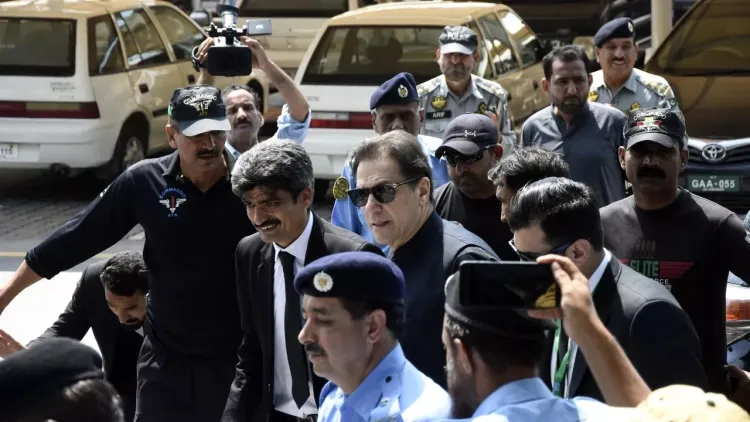One Year After Pakistan’s General Election: Political Turmoil, Imran Khan’s Plea to the Army, and Judicial Crisis
A year after Pakistan’s general election, political instability continues. Imran Khan, still in jail, writes to the Army Chief alleging election fraud, while protests erupt over judicial interference. Where is Pakistan headed?

Pakistan’s Political Crisis Deepens: Imran Khan Appeals to the Army
A year has passed since Pakistan’s general elections, yet the country remains embroiled in deep political instability. Former Prime Minister Imran Khan, who has been in jail since August 2023, has written a letter to the Army Chief, citing concerns about election rigging, judicial manipulation, and state repression.
In an unusual move, Khan has chosen to appeal to the military rather than the judiciary or legislature, underscoring the dominance of the Army in Pakistan’s political affairs. His plea coincides with major protests planned by his party, Pakistan Tehreek-e-Insaf (PTI), against the current Shahbaz Sharif-led government.
Imran Khan’s Allegations: Election Rigging and State Crackdown
In his letter, Imran Khan raises several pressing issues, including:
- Election fraud and the alleged manipulation of the 2023 general elections.
- Crackdown on PTI workers and supporters, with state institutions allegedly working against his party.
- The 26th Constitutional Amendment, which he claims is being used to control the judiciary.
- Freedom of speech suppression, particularly through the Pakistan Electronic Crimes Act, which restricts social media and internet freedoms.
Khan describes an increasing disconnect between the Army and the people, warning that continued state repression could further destabilize the country.
Pakistan’s Government and Military Respond
The Pakistan government swiftly rejected Khan’s accusations, dismissing them as baseless. Interestingly, the Pakistan Army claimed it never received any such letter, adding to the mystery surrounding Khan’s appeal.
However, what stands out in this ongoing crisis is the reliance of both Imran Khan and Prime Minister Shahbaz Sharif on the military to settle political disputes—reinforcing the reality that the Army remains the ultimate power broker in Pakistan.
Judicial Crisis and Protests Over Political Interference
As political tensions escalate, Pakistan’s judiciary is also in turmoil. Lawyers across Islamabad and Lahore have been staging protests against:
- The transfer of three Lahore High Court judges to the Islamabad High Court, seen as an attempt to undermine judicial independence.
- The 26th Constitutional Amendment, which many believe allows the government to manipulate the judiciary.
Even more alarming is the trial of PTI activists in military courts, raising serious constitutional concerns. Critics argue that such trials violate due process and democratic norms, further eroding public trust in the judiciary.
Pakistan’s Economy and Security: A Crisis with No End in Sight
Beyond the political and judicial chaos, Pakistan’s economic and security situation remains dire.
- Economic Struggles: The country continues to face severe financial distress, relying on international bailouts to keep afloat.
- Terrorism Resurgence: Balochistan and Khyber Pakhtunkhwa have seen a sharp rise in terrorist activity, adding to the government’s woes.
Despite these challenges, Pakistan’s political leadership remains locked in a power struggle, with democratic governance suffering as the Army continues to dictate national affairs.
The India Factor: Could Improved Relations Be Pakistan’s Lifeline?
Many experts argue that Pakistan’s only path to long-term stability lies in strengthening economic and political ties with India. Improved relations could:
- Reduce the military’s grip on Pakistan’s governance.
- Ease financial dependence on foreign aid.
- Boost trade and economic recovery.
However, given Pakistan’s deep-rooted ideological stance and ongoing hostilities, such a transformation appears unlikely in the near future.
Conclusion: Pakistan’s Crisis is Far From Over
Whether Imran Khan returns to power, Shahbaz Sharif continues his tenure, or Bilawal Bhutto emerges as a new leader, Pakistan’s fundamental issues remain unresolved. The country’s crisis is deeply embedded in:
- The historical dominance of the Army.
- The flawed judicial system.
- Weak democratic institutions.
Without systemic change, Pakistan is likely to remain trapped in a cycle of political unrest, economic decline, and military dominance—a crisis with no clear resolution in sight.
What's Your Reaction?














